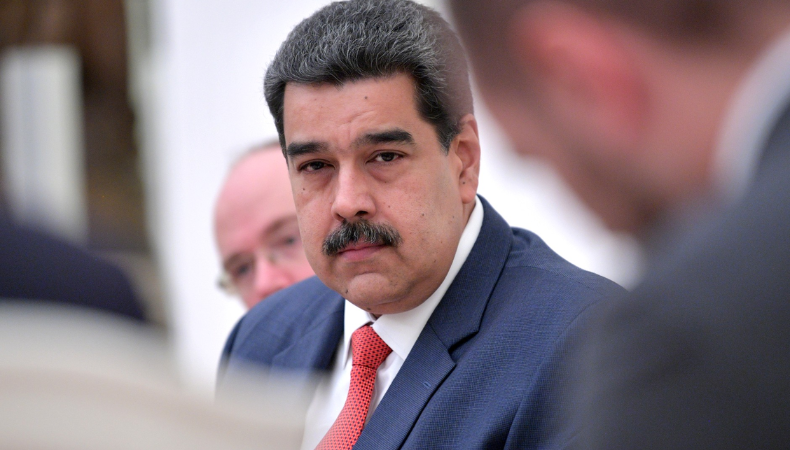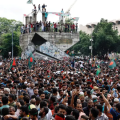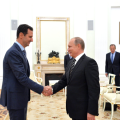Why is there Mounting Criticism Against Nicolás Maduro Amid Deadly Protests?

Following the start of lethal demonstrations all throughout Venezuela following the disputed presidential election, criticism of the authoritarian leader Nicolás Maduro is getting more intense. Along with several leaders from Latin America, the Venezuelan opposition has rejected to accept Maduro’s triumph in the July 28 poll, declared by the country’s electoral body, which is generally seen as being packed with Maduro’s loyalists.
Deaths and Arrests
Tragic results have come of course from the upheaval. The non-governmental group Foro Penal claims at least 11 individuals have died during the demonstrations. According to Venezuelan officials, more than 1,000 persons have been taken under custody. On Wednesday, Attorney General Tarek William Saab said that a National Guard sergeant died on Tuesday and that 77 law enforcement personnel were wounded in conflicts with protestors. These events have greatly escalated the country’s unstable condition.
Claims about Military Loyalty and Kidnapping
To add to the unrest, according to his supporters, an influential opponent was supposedly kidnapped. Long supporting Maduro, the nation’s army confirmed its allegiance to the struggling leader at the same time. This episode underlines the growing crisis and the unstable situation of law and order in Venezuela.
The Electoral Consequentialism
With Venezuela’s democracy hanging in the balance and the dreams of rebuilding its broken economy, the most important election of recent years was thought to be this one. Though Maduro promised free and fair elections, there were claims of anomalies in the process. The top opposition candidate was forbidden from running, opposition leaders were detained, and opposition witnesses apparently were refused access to the centralized vote count. Many Venezuelan expatriates were also essentially unable to vote.
Public Response and Protests
Many young opposition supporters have said in response to the contested election results that they want to leave the nation should Maduro stay in office. Considered as the strongest threat facing the ruling elite in 25 years, the opposition, with impressive poll results prior to the vote, was considered as Still, Maduro’s declared triumph has spurred large-scale demonstrations.
Opposition and Electoral Conflict
Former diplomat Edmundo Gonzalez, the opposition candidate, entered the picture following the hugely popular center-right leader Maria Corina Machado’s disqualification from candidacy. Machado is nevertheless a major player in the opposition movement, which promises to bring back democracy and revive the economy despite this setback. With 51.2% of the votes, the National Electoral Council (CNE) formally named Maduro the winner; Gonzalez apparently got 44.2%. The opposition argues, however, that Gonzalez earned a majority of the votes and that their own totals produce different outcomes.
Domestic and Foreign Reactions
To settle the electoral conflict, the world community—including Brazilian President Luiz Inácio Lula da Silva—has demanded openness and the publishing of all voting statistics. Lula underlined the need of both sides showing their findings and settling differences by means of legal procedures. He underlined the need of the international community accepting the election results once all totals were released and attacked outside intervention.
Political Risks in Venezuela
Losing control might have dire effects for Maduro. In the United States, he is accused of drug trafficking and corruption; the International Criminal Court is looking at crimes against humanity. Giving up control without a clear agreement could result in jail.
Allegations of Election Fraud
Opposition leaders have protested many anomalies throughout the election. Their witnesses, according to them, were denied access to the CNE headquarters for the vote counting, so compromising openness. Organizations like The Carter Center said they could not confirm the outcomes, hence only a small number of election watchers were let. The opposition further claimed that the CNE stopped data flow from polling sites, therefore impeding an accurate vote count.
Response of the Venezuelan Public
Although supporters of Maduro celebrated his victory in some areas of Caracas, the general public reaction was marked by extensive demonstrations. Hundreds of people marched carrying Venezuelan flags and calling for liberation in Caracas and other cities. Using tear gas and batons, national guard troops responded to the demonstrations marked by the Latin American practice of “cacerolazo” (banging pots).
Government’s Repression and Stance
Declining the demonstrations, Maduro called the protestors criminals and claimed foreign influence in the upheaval. Framing the demonstrations as violent, Attorney General Saab noted hundreds of detentions and injuries among law enforcement personnel. Reiterating the military’s allegiance to Maduro, Defense Minister Vladimir Padrino López said the demonstrations were an attempt at a coup.
Keep On Reading
Said Kidnapping Event
In a dramatic escalation, armed people allegedly abducted opposition leader Freddy Superlano. Eyewitnesses detailed the abduction, which took place in broad daylight, underlining the perilous and repressive surroundings opposition leaders in Venezuela found.
Historical Context of Repress
For many Venezuelans, the present crackdown reminds them of past times of extreme repression, such as in 2017 and 2019 when the military and police ferociously safeguarded the Chavismo system. These historical forebates highlight the continuous fight in Venezuela for democracy and human rights.
The highly changing circumstances of Venezuela have major consequences for both its people and future. The whole community keeps constant observation since the result of this crisis will probably affect much beyond the boundaries of Venezuela.






